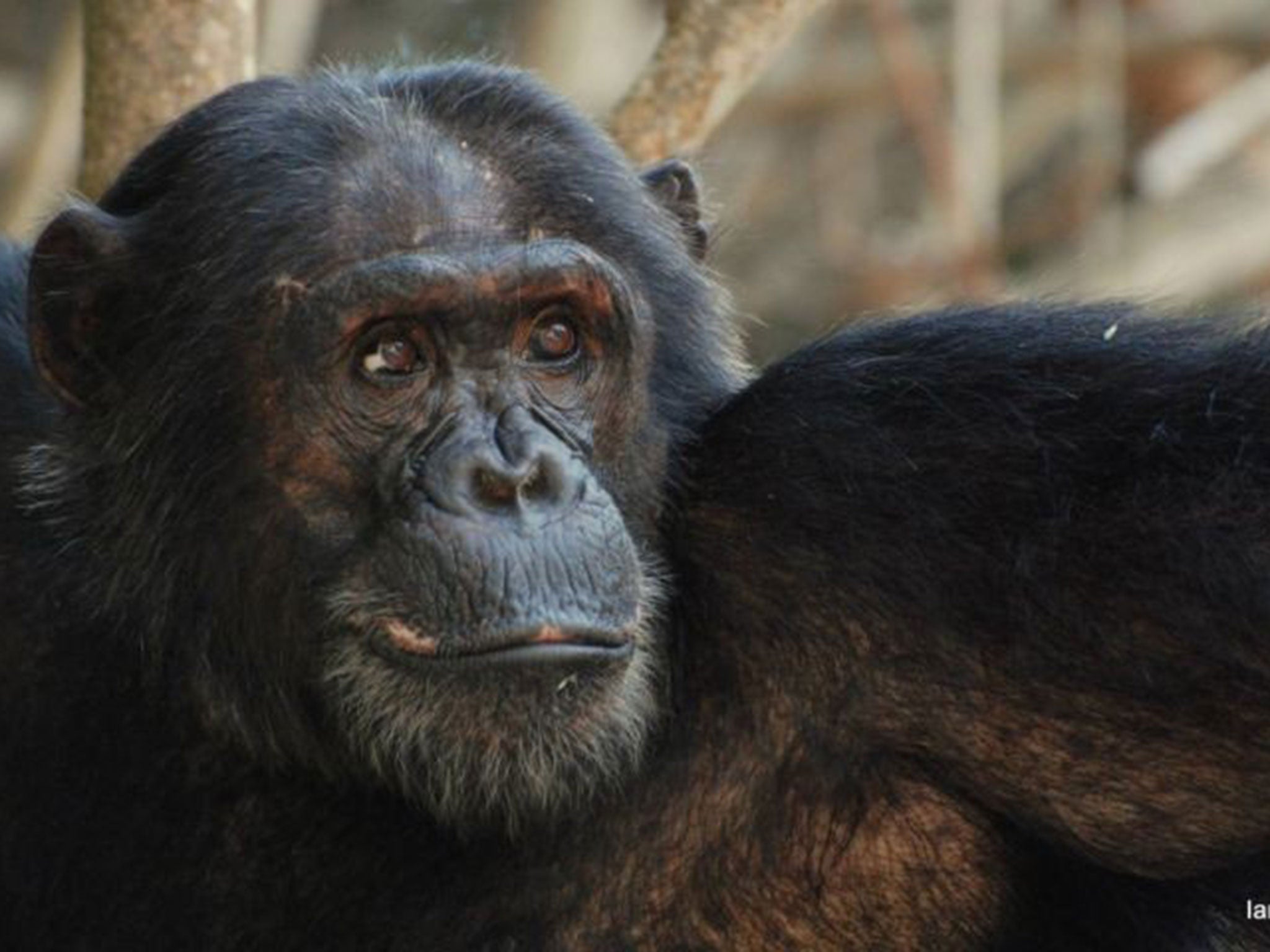Wild chimps ape each other with a new 'tool' - and reveal how their culture evolves
'We were incredibly lucky to be in the right place at the right time' says researcher

Your support helps us to tell the story
From reproductive rights to climate change to Big Tech, The Independent is on the ground when the story is developing. Whether it's investigating the financials of Elon Musk's pro-Trump PAC or producing our latest documentary, 'The A Word', which shines a light on the American women fighting for reproductive rights, we know how important it is to parse out the facts from the messaging.
At such a critical moment in US history, we need reporters on the ground. Your donation allows us to keep sending journalists to speak to both sides of the story.
The Independent is trusted by Americans across the entire political spectrum. And unlike many other quality news outlets, we choose not to lock Americans out of our reporting and analysis with paywalls. We believe quality journalism should be available to everyone, paid for by those who can afford it.
Your support makes all the difference.The spread of ideas and culture was once considered to be something that separated humans from the rest of the animal kingdom but scientists have now found the first direct evidence of the transmission of technological inventions between wild chimpanzees.
A long-term study of chimpanzees living in the Budongo Forest of Uganda has revealed two instances of the social transmission of new tool-making skills between members of the same community – the first time this has been observed in non-captive chimps.
Scientists witnessed how the wild chimpanzees observed the invention of new “drinking vessels”, such as a sponge made of moss, by one of their members and then copied the tool use so that the behaviour was soon transmitted within the same community of chimps.
Chimpanzees were known to use crumpled leaves to soak up water but in 20 years of observations this group of chimps had never been seen to use sponges made of moss. Neither did they re-use discarded sponges made of crumpled leaves, but this too was found to be a novel trait that was passed on between the chimps, the scientists said.
The observation provides a revealing insight into the kind of primate behaviour that could have led to the evolution of culture in early human ancestors after they had diverged from the last common ancestor of man and chimpanzee between 5 and 7 million years ago, they said.
Although the existence of different cultural traditions between separate communities of wild chimps has been reported before, scientists have never witnessed the transmission of a completely new tool-making invention from the original “inventor” to other chimps, they claimed.
“Researchers have been fascinated for decades by the difference in behaviour between chimpanzee communities. Some use tools, some don’t, some use different tools for the same job,” said Catherine Hobaiter, lecturer in psychology at the University of St Andrews.
“These behaviours have been described as ‘cultural’, which in human terms would mean they spread when one individual learns from another. But in most cases they’re long established and it’s hard to know how they originally spread within a group,” Dr Hobaiter said.
“We were incredibly lucky to be in the right place at the right time to document the appearance and spread of two novel tool-use behaviours, something that is extraordinarily rare in the wild,” she said.
The study began in 2011 when researchers saw a 29-year-old “alpha” male called Nick make a moss sponge to soak up water from a muddy water hole created after a river had flooded. He was watched by a dominant adult female called Nambi who quickly copied him.
Within six days, a further seven chimps were making moss sponges for drinking and the behaviour continues today among a group of about a dozen chimps within the community of 70 chimps, according to Thibaud Gruber of the University of Neuchatel in Switzerland.
“We were quite surprised it was Nick who first came up with the idea. He wasn’t particularly famous for being an inventive or adventurous chimp. We honestly don’t know why he did it, but his idea was passed on,” Dr Gruber said.
“This study tells us that chimpanzee culture changes over time, little by little, by building on previous knowledge found within the community. This is probably how our early ancestors’ cultures also changed over time. In this respect, this is a great example of how studying chimpanzee culture can help us model the evolution of human culture,” he said
The research, published in the on-line journal PLOS Biology, used social-networking models to show how the transmission of the novel tool-use behaviours relied on the closeness of the interactions between individuals within the group, according to William Hoppitt, a zoologist at Anglia Ruskin University.
“Our results provide strong evidence for social transmission along the chimpanzees’ social network, demonstrating that wild chimpanzees learn novel tool-use from each other and support the claim that some of the observed behavioural diversity in wild chimpanzees should be interpreted as ‘cultural’,” Dr Hoppitt said.
Intelligent chimps: captivity study
Chimps have been shown to plan ahead. Santino, a captive animal in Furuvik Zoo in Sweden, collected a pile of stones before opening time in the morning so he could throw them at the first visitors. A chimp called Kanzi could accurately locate the correct printed symbols for a spoken word or phrase, suggesting the primate identification of spoken sounds. Another called Panbanisha has been trained to understand simple English sentences and a female called Ai was taught to count to 10 and remember five-figure numbers, two short of the seven-digit telephone numbers most humans can recall.
Join our commenting forum
Join thought-provoking conversations, follow other Independent readers and see their replies
Comments